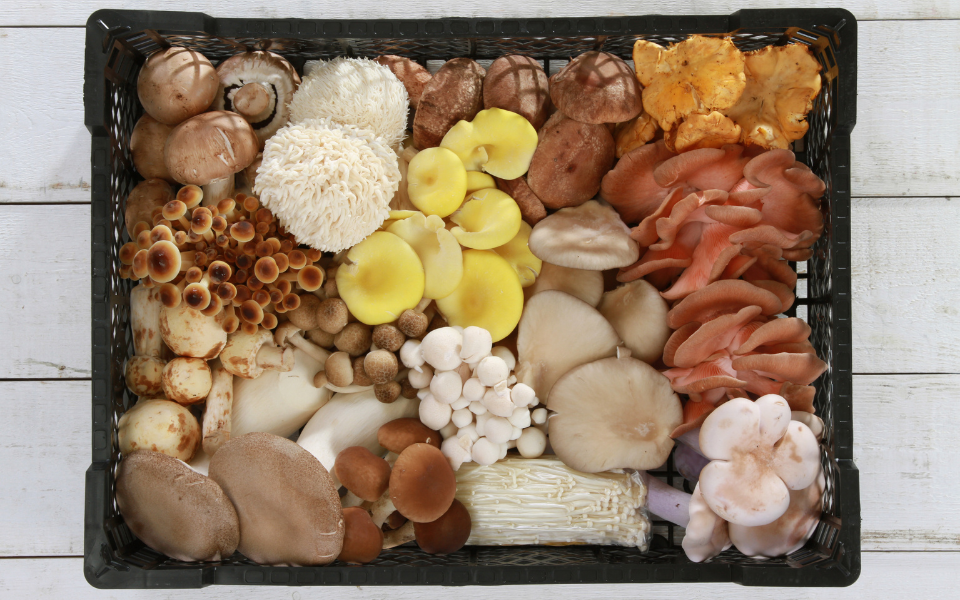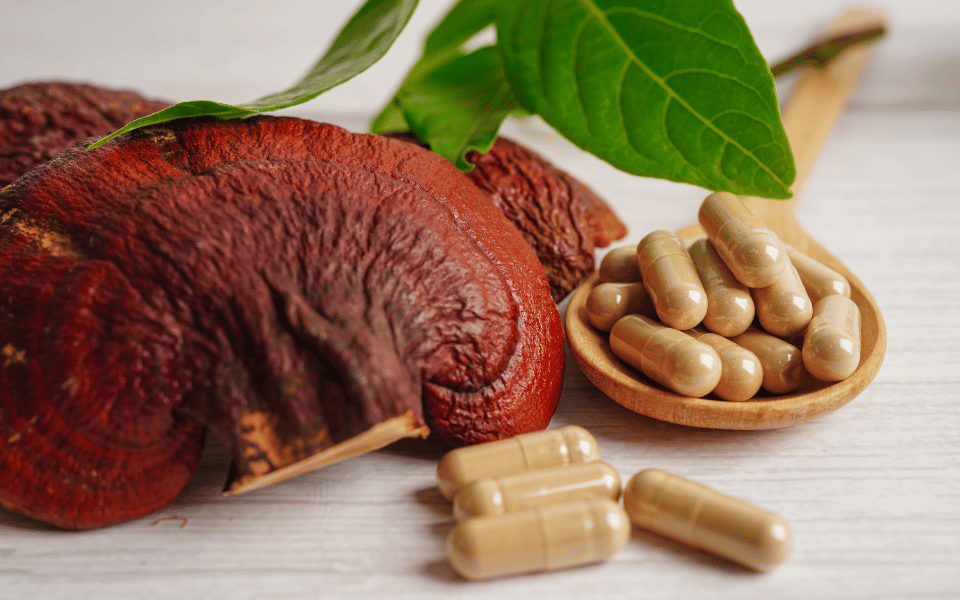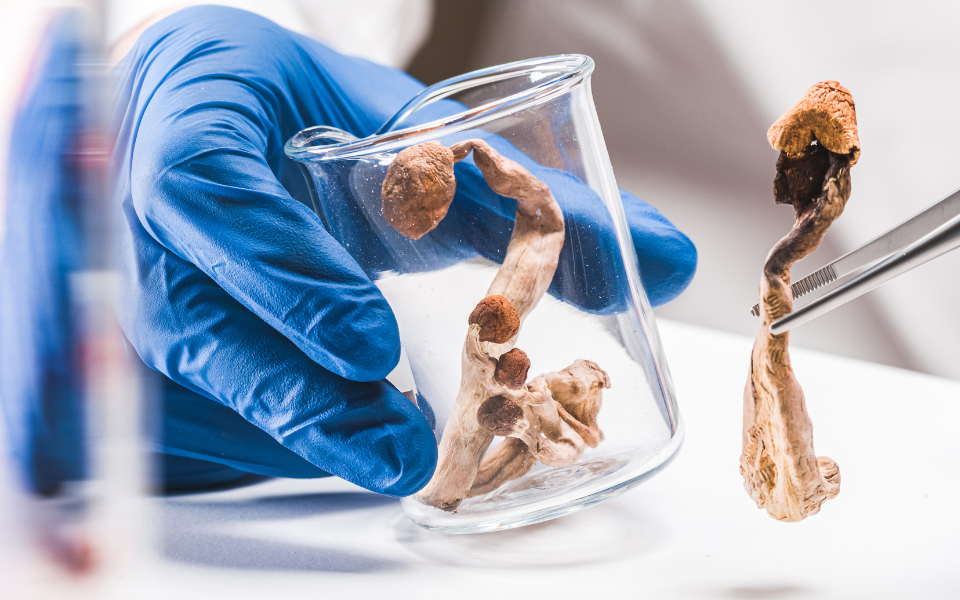Throughout history, the mysterious and profound qualities of mushrooms have been a source of fascination and intrigue. Their ability to emerge from the earth overnight and the variety of forms they take have contributed to their portrayal in myth and lore as magical entities.
Beyond the myths, however, lies a rich tapestry of medicinal properties that various cultures have tapped into for centuries. Medicinal mushrooms are a group of fungi that are known for their healing properties and are used to promote health and well-being.
Their use spans various continents and cultures, and their recognition in the realm of health care is not just a passing trend but a rediscovery of ancient wisdom.
As the intersection of tradition and science continues to expand, the interest in medicinal mushrooms has surged, making them a focal point in the discussion of natural health remedies and integrative medicine approaches.

A Brief History of Medicinal Mushrooms
The history of medicinal mushrooms is as rich and diverse as the fungi themselves. Archaeological evidence suggests that humans have been using mushrooms for medicinal purposes since prehistoric times.
The earliest documented evidence comes from ancient China, where mushrooms were revered for their healing properties and were a staple in the practice of traditional Chinese medicine.
Legendary figures like Shennong, the mythical emperor of China and the supposed father of Chinese medicine, are said to have cataloged hundreds of medicinal plants and fungi, including mushrooms.
In other parts of the world, such as ancient Egypt, mushrooms were considered a plant of immortality, so highly esteemed that only pharaohs were allowed to consume them. They were thought to grant eternal life and were often included in the diet of the royal family.
In North American tribal medicine, mushrooms like the reishi were employed for their therapeutic properties. These examples illustrate that the history of medicinal mushrooms is a global tapestry, with each culture contributing its own threads to the larger picture.

Cultural Significance of Medicinal Mushrooms
Medicinal mushrooms hold a special place in the cultural heritage of many societies. In Asia, they are closely associated with longevity and vitality. The reishi mushroom, in particular, is often depicted in art and literature as a symbol of good health and prosperity. Its depiction alongside figures of deities and immortals underscores its importance in the cultural psyche as a bridge to a more enlightened and healthier state of being.
In Japan, mushrooms such as shiitake have been cultivated for their medicinal properties for centuries. The process of growing these mushrooms was developed over generations and became a blend of art and science. The knowledge of mushroom cultivation and their medicinal uses was often passed down within families, with each generation refining the techniques and understanding of these complex organisms.
The cultural significance of medicinal mushrooms extends beyond their health benefits to their role in spiritual practices. For many indigenous cultures, mushrooms also played a part in ritual and ceremony. They were used as sacraments that facilitated communication with the spiritual world, and their transformative effects were respected and revered. This deep respect for the power of medicinal mushrooms is a testament to their profound impact on human health and spirituality.

The Role of Medicinal Mushrooms in Traditional Medicine
In traditional medicine systems around the world, medicinal mushrooms have been used to treat a wide array of health issues. Traditional Chinese Medicine (TCM), which has a history spanning thousands of years, integrates medicinal mushrooms into its holistic approach to health. TCM practitioners utilize mushrooms like lingzhi (reishi), cordyceps, and maitake to balance the body's Qi, or vital energy, and to support organ systems such as the liver, lungs, and heart.
Similarly, in Ayurveda, the ancient Indian system of medicine, mushrooms are used for their adaptogenic properties, helping the body to resist stressors and maintain homeostasis. Ayurvedic texts describe the use of various fungi to bolster the immune system, improve vitality, and treat infections. The adaptogenic nature of these mushrooms makes them particularly valuable in a world where stress and chronic diseases are prevalent.
In traditional Russian and Eastern European folk medicine, Chaga mushrooms have been brewed into teas for their purported benefits in enhancing stamina and treating gastrointestinal ailments.
The Sami people of Northern Scandinavia and the Koryak people of Siberia have also utilized mushrooms for their health-promoting properties, often in the form of teas and tinctures. The role of medicinal mushrooms in traditional medicine is not only therapeutic but also preventive, emphasizing the maintenance of health rather than just the treatment of disease.

Medicinal Mushrooms in Modern Medicine
Modern medicine is experiencing a renewed interest in medicinal mushrooms, with research now backing up their traditional uses. Reishi mushrooms, known for their anticancer properties and immune system support, have been a main focus.
Turkey Tail mushrooms are also significant, especially the polysaccharide-K compound they contain, which has been used alongside cancer therapy in Japan for years, illustrating the blend of traditional wisdom and contemporary science.
Psychopharmacology is studying the potential of specific mushrooms, particularly those containing psilocybin (found in "magic mushrooms"), to treat mental health issues like depression, anxiety, and PTSD. While these applications are still under investigation, they signal a growing recognition of the therapeutic potential that medicinal mushrooms may offer.

The Future of Medicinal Mushrooms
The future of medicinal mushrooms appears to be one of growing interest and continued discovery. Emerging research will likely reveal more beneficial compounds and uses, enhancing their role in both traditional and modern medicine.
With increasing demand, an emphasis is being placed on sustainable and ethical sourcing, with cultivation methods reproducing natural conditions to protect wild populations. The incorporation of these mushrooms into healthcare practices, dietary supplements, and functional foods is ongoing, promising an even more integrated role in the future.
Where to Buy High-Quality Medicinal Mushroom Capsules
The journey of medicinal mushrooms from ancient remedies to modern health solutions is a testament to their enduring value and the wisdom of traditional practices. As society continues to explore the intersections of nature, health, and technology, the role of medicinal mushrooms will undoubtedly expand. They serve as a bridge between the past and future, offering natural solutions that honor the body's intrinsic healing capabilities.

For those seeking to incorporate the benefits of medicinal mushrooms into their wellness routine, quality is paramount. Magic Moon Mushrooms is committed to providing high-quality medicinal mushroom capsules, using sustainably sourced ingredients. Their products are crafted with respect for the ancient traditions and scientific understanding that have brought these remarkable fungi to the forefront of natural health.
Try Magic Moon Mushrooms Medicinal Mushroom Supplements today to boost your health and honor the many ancient cultures who valued the use of medicinal mushrooms. Embrace the rich history and cultural significance of these natural wonders as you embark on your journey to wellness.

